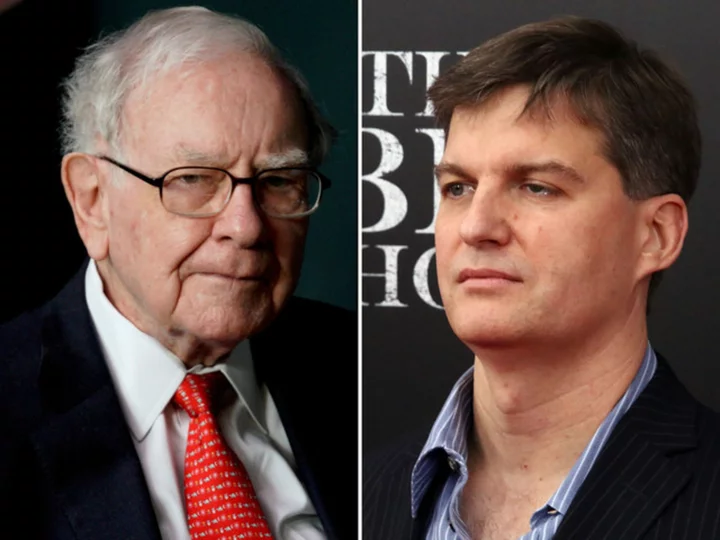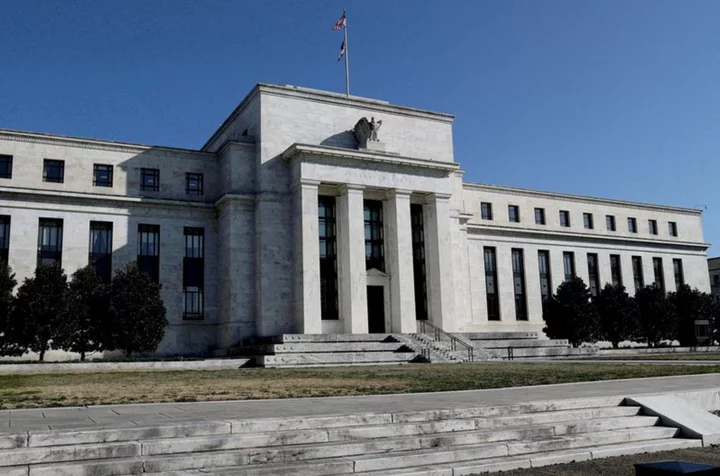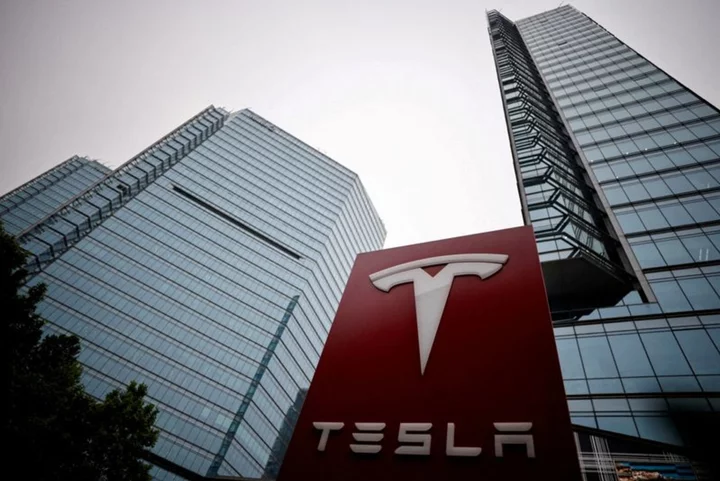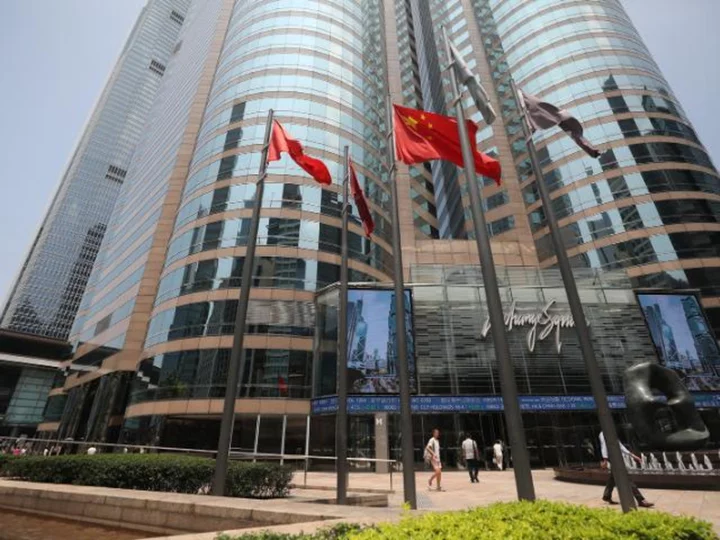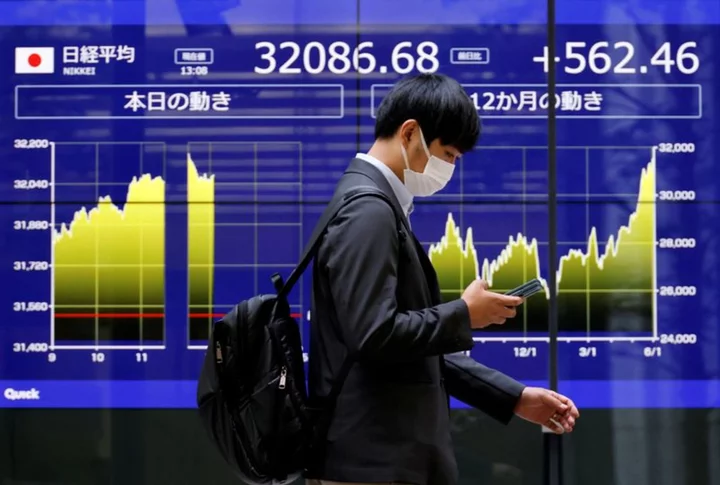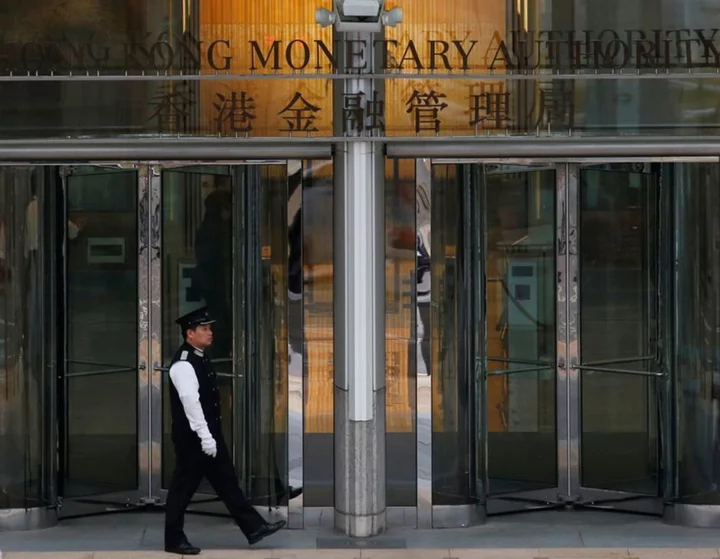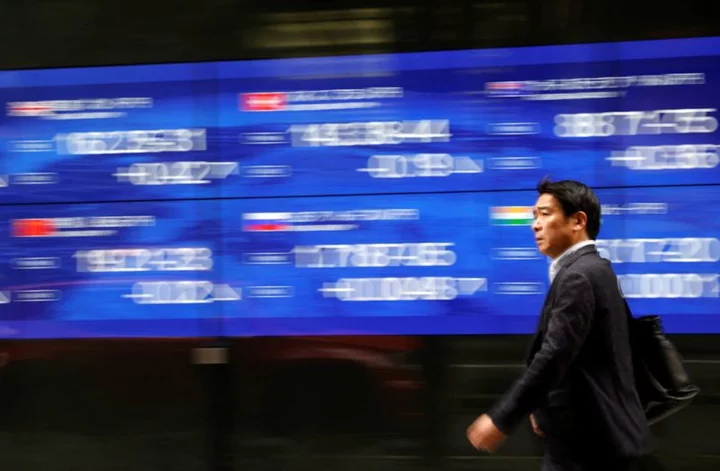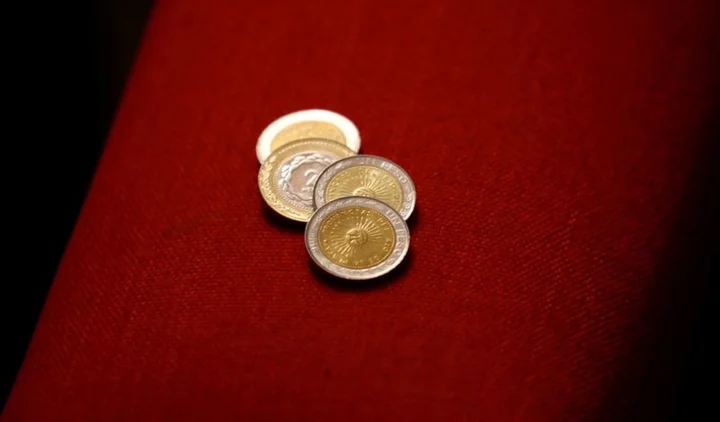The S&P 500 index is up nearly 17% year to date, and the Nasdaq composite is more than 30% higher. Americans keep spending money, unemployment is low, the Federal Reserve may soon pause its painful interest rate hikes as inflation rates steadily — albeit slowly — come down.
But Securities and Exchange Commission filings out Monday showed that Warren Buffett's Berkshire Hathaway sold almost $8 billion more in shares than it bought in the second quarter of 2023. That's not too much by his standards, but a significant move when the market is up.
Michael Burry, the "Big Short" investor who became famous for correctly predicting the epic collapse of the housing market in 2008, also made a gigantic bet last quarter on a Wall Street crash. Burry's fund, Scion Asset Management, bought $866 million in put options (that's the right to sell an asset at a particular price) against a fund that tracks the S&P 500, and $739 million in put options against a fund that tracks the Nasdaq 100.
Most fund managers seem to be less bearish on equities than they have been in the recent past. Bank of America released its August global fund manager survey on Tuesday and found that money managers are feeling the least pessimistic about markets since February 2022. Their cash levels have also plunged from 5.3% to 4.8%, meaning they're investing that money instead of holding on to it.
So what do Buffett and Burry know that the rest of us don't?
Here are the four things that might have smart investors running scared.
China: The health of China's economy has become a serious concern for US investors. Traders worry that weakness in the world's second largest economy could affect the global outlook. China's consumer spending, factory production and investment in fixed assets all slowed further in July from a year ago, according to the National Bureau of Statistics. China also recently suspended the release of monthly data on joblessness among young people after the figure repeatedly hit record highs.
Tensions between the US and China, meanwhile, have been on the rise as the world's two largest economies clash over issues ranging from trade policy and technology, to Russia's invasion of Ukraine.
Russia and Ukraine: Global inflation is finally coming down, but heightened geopolitical tensions threaten to raise food and oil prices across the globe. Russia's invasion of Ukraine continues to stoke fears of increased commodity prices, global economic instability and uncertainty around security.
Jamie Dimon, CEO of JPMorgan Chase has cited the ongoing war as his greatest concern on many occasions. Most recently, he told CNBC that the world is seeing "serious" levels of "nuclear proliferation and nuclear blackmail." This level of geopolitical chaos, he said, hasn't been seen since World War Two. "The world's not that safe."
US slowdown: Unemployment is low and inflation rates are steadily coming down. But the US economy is still showing signs of a slowdown. Shoppers have tightened their purse strings in the face of higher prices and borrowing costs, focusing on paying for necessities like groceries over discretionary purchases like clothing or home improvements. There are signs from some retailers that demand has been weakening, which could eventually eat into their bottom line.
Bank risk: Fears of contagion still exist around the regional banking crisis in March: Burry's fund is also getting out of its shares in a number of regional banks — it sold its 150,000 shares of First Republic Bank as well as holdings in Huntington Bank, PacWest and Western Alliance.
Big banks could also be in hot water: Bank shares fell on Monday following reports that Fitch Ratings warned of an additional downgrade of the US banking industry that could affect the ratings of several large American lenders.
Cautious, but still spending
You just can't keep the American consumer down for long — at least when it comes to buying stuff.
Retail sales picked up sharply in July, growing by 0.7% as consumers opened their wallets more at sports and clothing stores, spent more online and racked up larger tabs at restaurants and bars, according to Commerce Department data released Tuesday.
Even when adjusted for inflation, retail sales volumes rose by 0.6%, "indicating that while consumers are increasingly cautious with their outlays amid elevated prices and interest rates, they are not retrenching," said EY chief economist Gregory Daco.
Total credit card spending per household was up 0.1% year-over-year in July, according to recent Bank of America data. Card spending per household rose by 0.7% month-over-month.
Consumer spending accounts for about 70% of the US economy, so July's jump in sales indicates broader economic growth in general. That means the Fed is less worried about a recession and more worried about keeping inflation under control through interest rate hikes.
Finding a way to rebuild
The agony wrought by the deadliest US wildfire in a century is only beginning in Lahaina, Hawaii, where the inferno virtually wiped the town off the map, writes my colleague Catherine Thorbecke in a devastating story about what was lost and what might come next for residents.
Their fear, as they begin the process of sorting through the wreckage, is that developers will now try to swoop in and buy up the land where people's homes were destroyed, possibly rebuilding Lahaina into a Las Vegas-strip style tourism base.
The fears of land grabs from outsiders trying to cash in on the tragedy and push more local people out of Maui are very real, reports Catherine. Community groups have begun sharing resources, calling for people to report incidents of speculators circling their property in search of a deal.
You can read more here.

